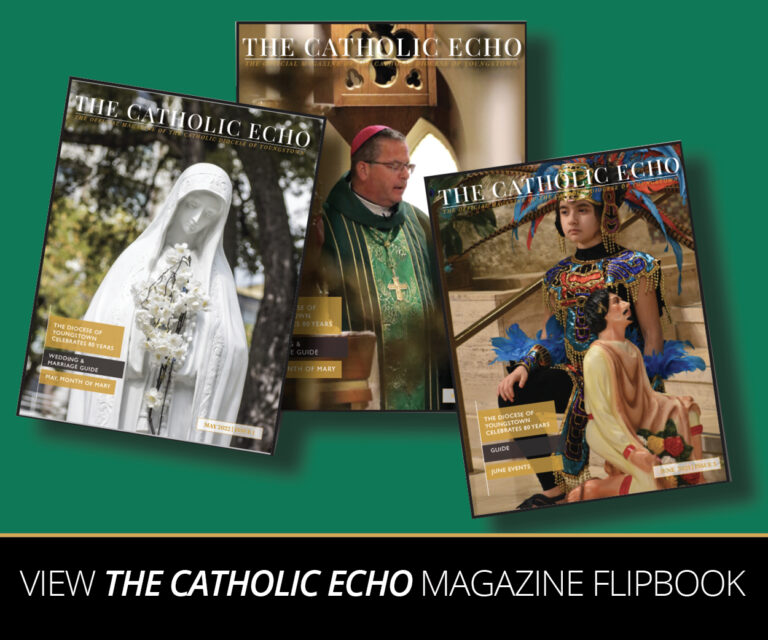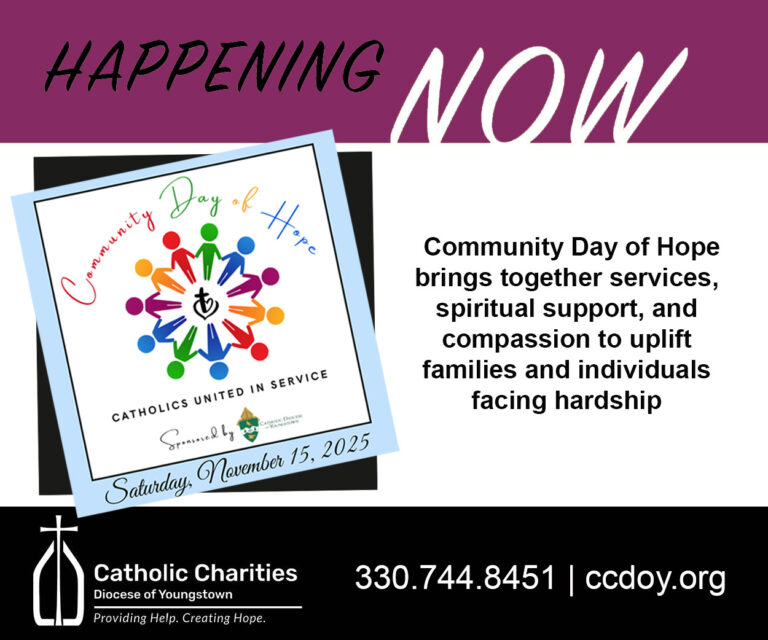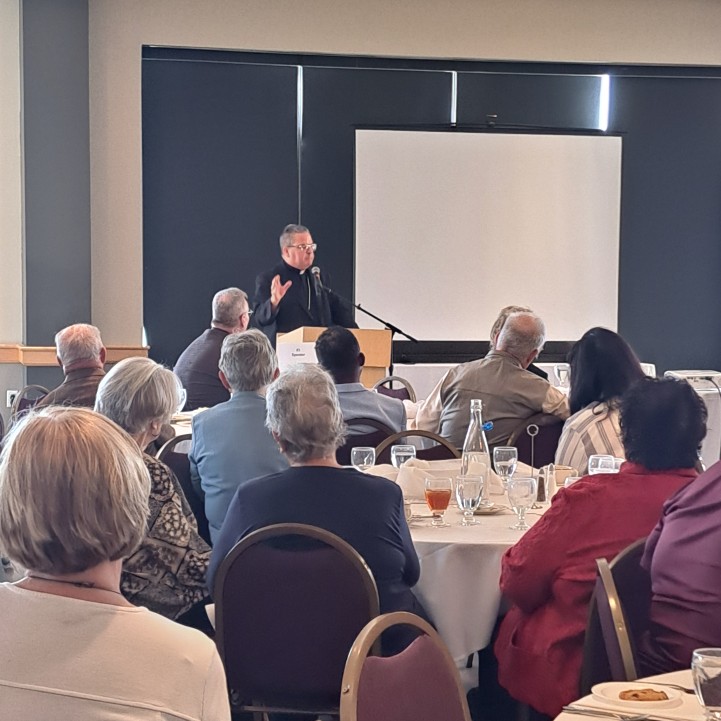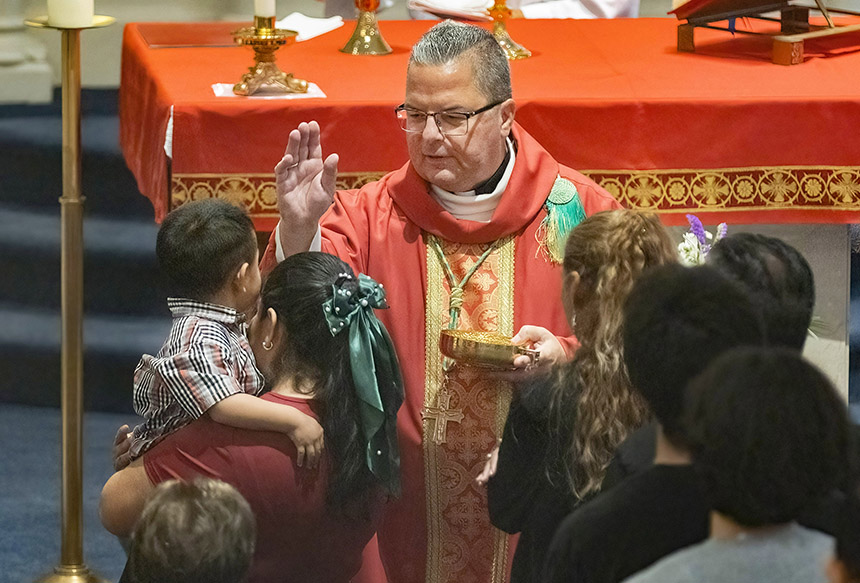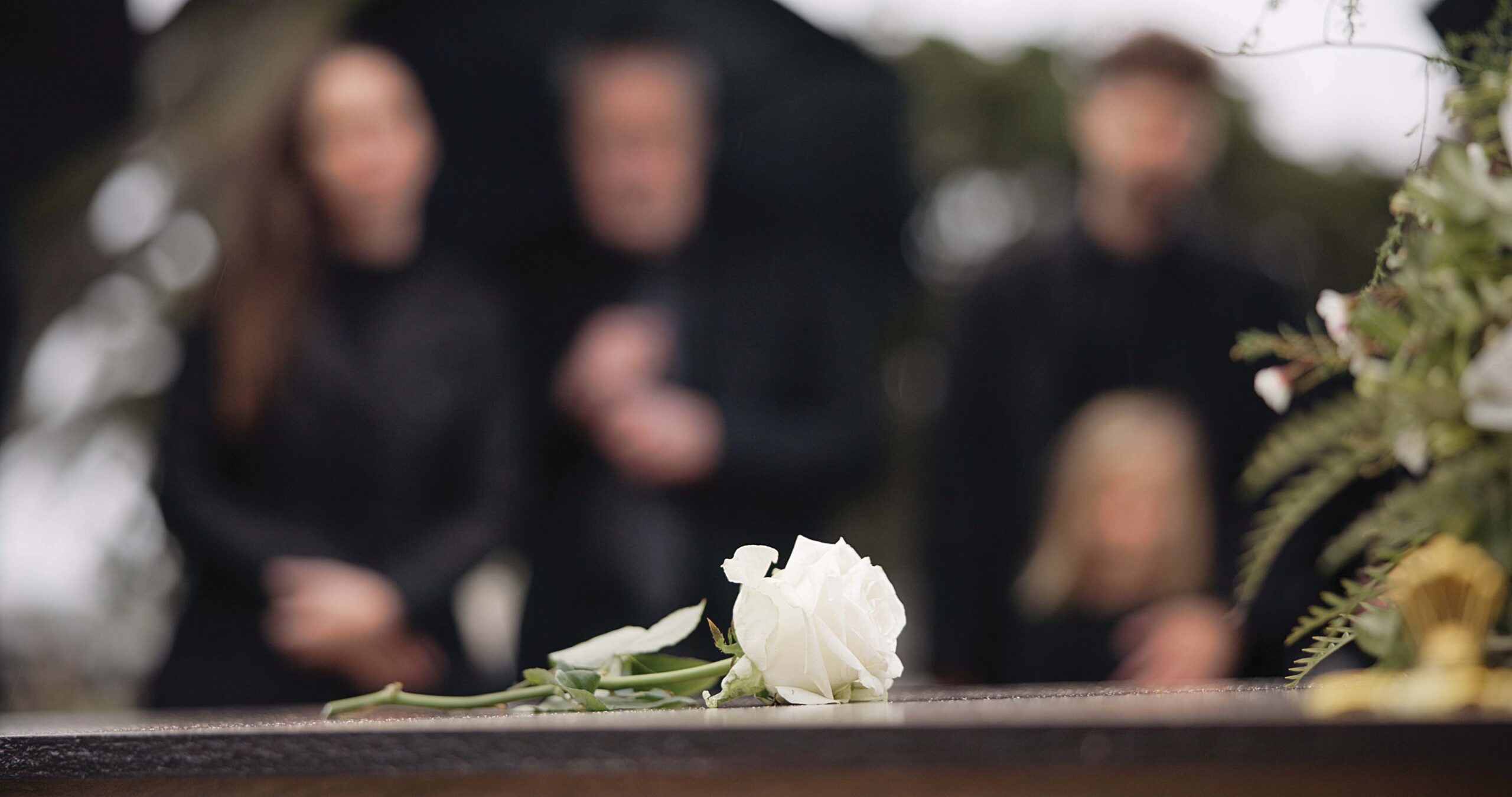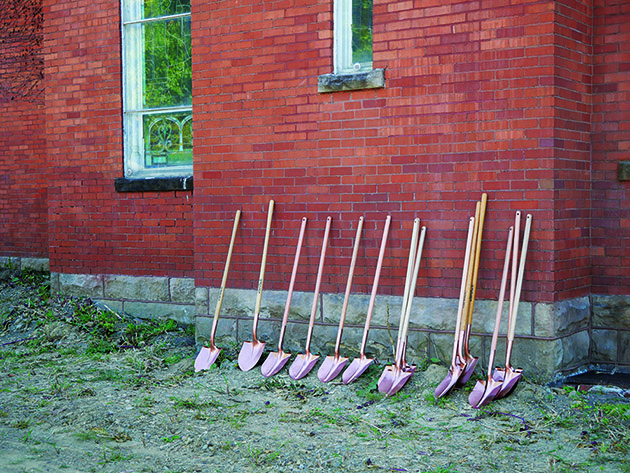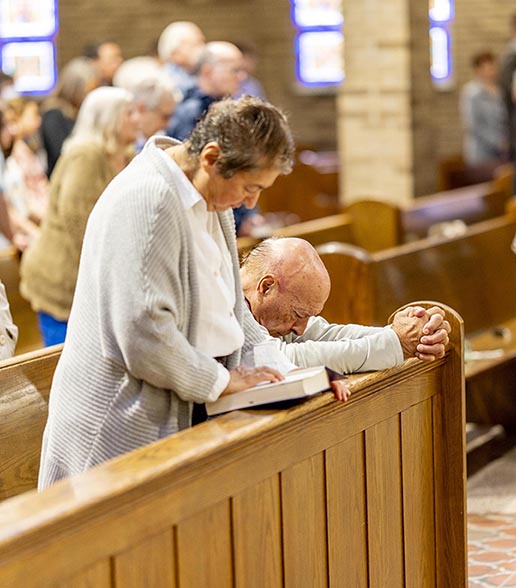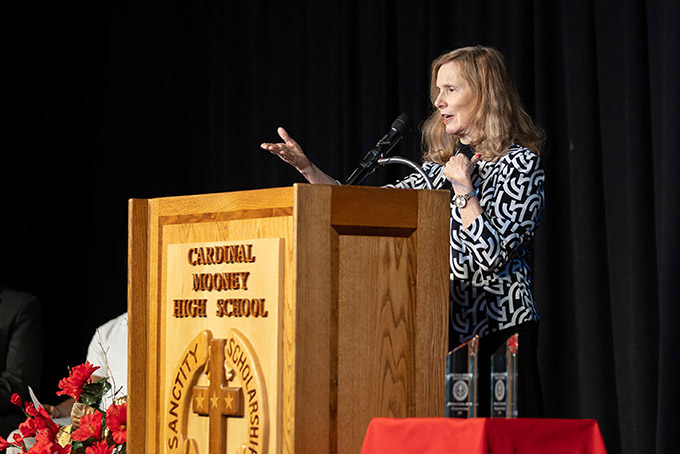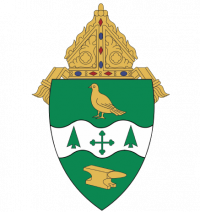Feast Day: February 14
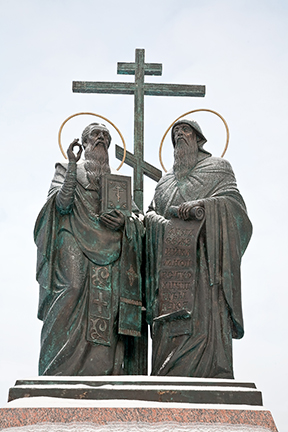
More than a millennium before the Second Vatican Council established Mass in the vernacular, rather than Latin, as the norm, Saints Cyril and Methodius—now known as the Apostles to the Slavs and co-patrons of Europe—set about offering Mass in the Slavonic languages.
Saints Cyril and Methodius were born early in the ninth century in Thessalonica (then part of the Byzantine Empire, in what is now Greece). Methodius, the elder brother, became an important civic official but eventually retired to a monastery. Cyril became a scholar and professor in Constantinople and was also ordained a priest.
In 860, Cyril embarked on missionary ventures to the Khazars, in what is now Ukraine.
In 862, Prince Ratislav of Great Moravia—which encompassed many territories in present day Eastern Europe—asked the emperor for missionaries to his Slavic subjects. He sent Cyril and Methodius.
A major focus of their ministry was translating the Gospels and liturgical books into the language now known as Old Church Slavonic. At the time, Mass was customarily offered in Greek in the East and Latin in the West. Cyril and Methodius also developed the Glagolitic alphabet, which was geared to the Slavic language. They also developed the Cyrillic alphabet, which was derived from the Glagolitic alphabet and named in honor of Cyril. That alphabet would spread throughout the Slavic word, laying the groundwork for the growth of Christianity among the many nations. They did encounter opposition, however, from some ecclesiastical jurisdictions who wanted to maintain Mass in Latin.
Pope Adrian II ordained Methodius a priest, and according to some accounts, Cyril was made a bishop in 869. Yet, Cyril died that same year. Methodius, who was also named a bishop, in 870, continued their work despite fierce opposition and even physical confinement for two years.
With Pope John VIII’s death in 882 and Methodius’ death in 884, the status of the Slavic liturgy became less secure. Pope Stephen V forbade the Slavic Mass, and Cyril and Methodius’ followers were exiled from Great Moravia. Their disciples fled to other Slavic nations—continuing their mission.
Today, many ethnic churches take the name “SS. Cyril and Methodius.” St. Teresa of Calcutta Parish in Warren offers homemade pierogies and other Slavic foods out of its “Saint Cyril Kitchen” year-round. For more information on upcoming sales call 330-393-0781 or visit www.warrencatholic.org.


